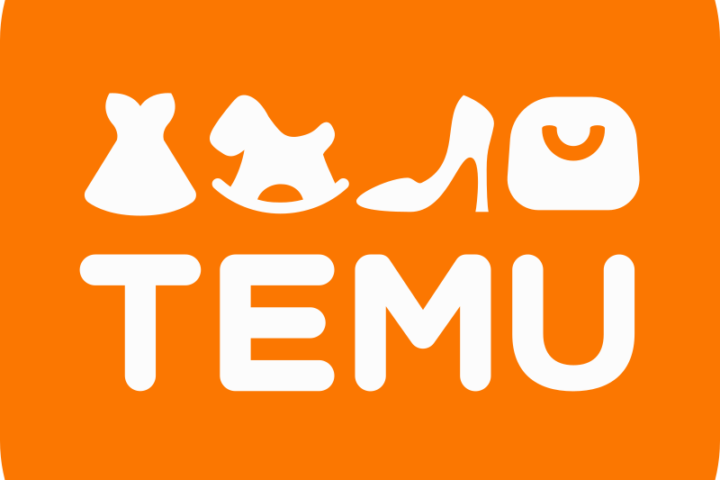Introduction to Melbourne’s Business Landscape
Melbourne, the capital of Victoria, is renowned for its dynamic and diverse business environment. The city boasts a robust economy supported by a mix of established industries and a burgeoning startup ecosystem. This blend makes Melbourne an attractive destination for entrepreneurs and investors alike.
One of Melbourne’s key strengths lies in its economic stability. The city consistently ranks high in global livability indices, reflecting its strong infrastructure, quality of life, and overall economic health. These factors create a fertile ground for businesses to thrive, ranging from small enterprises to multinational corporations.
Melbourne’s startup ecosystem is particularly vibrant. The city is home to numerous incubators, accelerators, and co-working spaces that foster innovation and collaboration. Initiatives like LaunchVic provide funding and support to startups, enhancing Melbourne’s reputation as a hub for entrepreneurial activity. This supportive environment attracts a steady stream of talent and investment, further fueling the growth of new ventures.
The city’s business landscape is characterized by a wide array of industries. Traditional sectors such as finance, manufacturing, and education continue to play a significant role. However, emerging industries like technology, biotechnology, and creative industries are rapidly gaining prominence. This diversity ensures that Melbourne remains resilient and adaptable to economic shifts, providing opportunities across various domains.
For investors, Melbourne offers a compelling proposition. The city’s strategic location, coupled with its diverse economy, provides a stable and promising market for investment. The presence of world-class universities and research institutions also drives innovation, leading to the development of cutting-edge technologies and business models.
In summary, Melbourne’s business landscape is a rich tapestry of established industries and innovative startups. Its strong economy, coupled with a vibrant entrepreneurial ecosystem, makes it an attractive destination for those looking to discover and invest in Melbourne’s most profitable niche.
The Importance of Finding a Profitable Niche
In the dynamic and competitive marketplace of Melbourne, identifying a profitable niche is paramount for businesses seeking to distinguish themselves. By honing in on a specific niche, companies can effectively target a defined audience, tailoring their products or services to meet precise needs. This strategic focus not only enhances customer satisfaction but also fosters brand loyalty, which is crucial for long-term success.
Focusing on Melbourne’s most profitable niche allows businesses to allocate resources more efficiently. Instead of spreading efforts thinly across a broad market, companies can direct their marketing and operational strategies towards a well-defined segment. This concentration facilitates the development of specialized expertise, enabling businesses to offer superior value compared to more generalized competitors.
Several successful niche businesses in Melbourne illustrate the benefits of this approach. For instance, a boutique coffee roastery that specializes in single-origin, organic beans has carved out a dedicated customer base among coffee connoisseurs. By emphasizing quality and unique sourcing, this business has differentiated itself from larger, less specialized competitors.
Another example is a local wellness center that focuses exclusively on holistic health treatments, such as acupuncture and naturopathy. This targeted approach attracts health-conscious individuals seeking alternative therapies, allowing the center to thrive in a crowded wellness market. The specificity of their services makes them a go-to destination for clients looking for specialized care they might not find elsewhere.
Moreover, niche businesses benefit from word-of-mouth marketing more effectively. When a company excels in a specialized area, satisfied customers are likely to recommend it to others within the same niche community. This organic growth can significantly enhance profitability without substantial marketing expenditures.
In conclusion, identifying and focusing on Melbourne’s most profitable niche offers numerous advantages. By catering to a specific market segment with tailored offerings, businesses can achieve higher profitability, foster customer loyalty, and stand out in a competitive landscape.
Researching Market Trends
Researching market trends is a critical step in identifying Melbourne’s most profitable niche. The process begins with a comprehensive understanding of consumer behavior. By analyzing purchasing patterns, preferences, and feedback, businesses can pinpoint emerging demands and gaps in the market. This insight is invaluable for tailoring products or services to meet the specific needs of Melbourne’s diverse consumer base.
In addition to consumer behavior, analyzing competitors is equally important. A thorough competitor analysis involves examining their strengths, weaknesses, market positioning, and customer engagement strategies. By understanding what competitors are doing well and where they are lacking, businesses can identify opportunities to differentiate themselves and capture a larger market share. Keeping an eye on direct and indirect competitors helps in crafting strategies that align with market needs and consumer expectations.
Staying updated with industry developments is another crucial aspect of researching market trends. This includes monitoring technological advancements, regulatory changes, and economic shifts that could impact the market. Subscribing to industry newsletters, attending conferences, and participating in professional networks are effective ways to stay informed. Utilizing these resources ensures that businesses are not only aware of current trends but also prepared to adapt to future changes.
Leveraging market research tools can significantly enhance the process of identifying Melbourne’s most profitable niche. Tools such as Google Trends, SEMrush, and social media analytics provide valuable data on search behavior, keyword performance, and audience demographics. These tools offer insights into what consumers are searching for and engaging with, helping businesses to align their offerings with market demand. Additionally, surveys and focus groups can provide direct feedback from potential customers, offering a deeper understanding of their needs and preferences.
Through a diligent and continuous process of researching market trends, businesses can uncover lucrative opportunities and stay ahead in Melbourne’s competitive landscape. By understanding consumer behavior, analyzing competitors, staying updated with industry developments, and utilizing modern research tools, businesses can strategically position themselves to thrive in Melbourne’s most profitable niche.
Identifying Gaps in the Market
Identifying gaps in the market is a crucial step for entrepreneurs aiming to discover Melbourne’s most profitable niche. The process involves thorough market research to uncover unmet needs, underserved demographics, and emerging trends. Entrepreneurs can utilize various methods to spot these opportunities. One effective approach is through competitive analysis, where businesses evaluate their competitors to identify what services or products are lacking in the current market. Additionally, customer feedback and surveys can provide invaluable insights into areas where consumer needs are not being fully addressed.
Another method is to analyze demographic data to pinpoint underserved groups. For instance, Melbourne’s diverse population includes various cultural, age, and socio-economic segments that may have specific needs not currently met by existing businesses. Emerging trends also offer a wealth of opportunities. By staying informed about global and local trends, entrepreneurs can anticipate shifts in consumer behavior and preferences, allowing them to develop innovative solutions before the market becomes saturated.
Several Melbourne-based businesses have successfully identified and capitalized on market gaps. For example, the rise of eco-conscious consumers led to the establishment of zero-waste stores such as The Source Bulk Foods. This business tapped into the growing demand for sustainable shopping options by offering bulk goods without packaging, catering to an environmentally aware demographic. Another notable example is the success of niche fitness studios like KX Pilates, which recognized a gap in the market for high-intensity, low-impact workouts and created a unique fitness experience that quickly gained popularity.
By employing these strategies to identify market gaps, entrepreneurs can position themselves to uncover Melbourne’s most profitable niche. Understanding and addressing the specific needs of underserved demographics, staying ahead of emerging trends, and learning from successful examples can significantly increase the likelihood of business success in this vibrant city.
Assessing Niche Profitability
Understanding and assessing the profitability of a niche is crucial to determining its potential success in Melbourne’s competitive market landscape. The initial step involves gauging the market demand. This can be achieved by analyzing consumer search trends, engaging in market surveys, and studying relevant industry reports. High market demand indicates a promising opportunity for revenue generation.
Next, the level of competition within the niche must be evaluated. A saturated market may signal intense rivalry, which can impede profitability. Therefore, scrutinizing competitors, their market share, and their strategies is essential. Tools like SWOT analysis (Strengths, Weaknesses, Opportunities, Threats) can be instrumental in this assessment, helping to identify gaps and areas for differentiation.
Pricing strategies play a pivotal role in niche profitability. It is important to establish a pricing model that not only covers costs but also aligns with consumer expectations and competitor pricing. Whether adopting a premium pricing strategy or aiming for cost leadership, the chosen approach must ensure sustainable margins. Conducting a break-even analysis will help determine the minimum sales volume required to avoid losses.
Potential for growth is another key aspect when assessing Melbourne’s most profitable niche. This involves examining trends and future projections within the niche. Factors such as technological advancements, regulatory changes, and evolving consumer preferences can influence growth potential. A niche with a high growth trajectory will likely offer better long-term profitability.
A step-by-step approach to conducting a profitability analysis includes financial forecasting and risk assessment. Financial forecasting involves projecting revenues, costs, and profits over a specific period. This can be achieved through methods such as trend analysis, regression analysis, or using financial modeling software. Risk assessment, on the other hand, involves identifying potential risks and devising mitigation strategies. This could range from market risks to operational risks, each requiring a tailored approach to manage effectively.
In conclusion, a comprehensive evaluation of niche profitability encompasses market demand, competition level, pricing strategies, and potential for growth. By methodically analyzing these factors and incorporating financial forecasting and risk assessment, businesses can make informed decisions and strategically position themselves within Melbourne’s most profitable niche.
Case Studies of Profitable Niches in Melbourne
Melbourne’s business landscape is a vibrant tapestry of innovative enterprises that have successfully identified and capitalized on their respective niches. From retail to technology, these businesses serve as exemplary models of how to thrive in Melbourne’s most profitable niche markets.
One notable case is a boutique coffee roastery that has carved out a unique space in the highly competitive Melbourne coffee scene. By focusing on sustainable sourcing and an exceptional in-store experience, this business has not only attracted a loyal local following but also gained national recognition. Their strategy includes collaborating with local farmers, offering coffee-tasting workshops, and leveraging social media to build a community around their brand.
In the realm of technology, a Melbourne-based startup specializing in artificial intelligence for healthcare has seen remarkable growth. Their niche lies in developing AI-driven diagnostic tools that assist medical professionals in early disease detection. The business’s success stems from extensive R&D, strategic partnerships with healthcare providers, and securing government grants. Despite initial challenges in funding and market penetration, their commitment to innovation and patient care has set them apart.
Another inspiring example is a local fashion brand that has embraced the slow fashion movement. By prioritizing ethical production practices and timeless designs, they have tapped into a growing market of conscious consumers. Their business model includes limited product releases, transparent supply chains, and engaging storytelling about the artisans behind each piece. This approach has helped them build a strong brand identity and foster customer loyalty.
These case studies illustrate that discovering Melbourne’s most profitable niche involves a blend of innovation, strategic planning, and community engagement. Whether through sustainability, technology, or ethical practices, these businesses demonstrate that with the right approach, thriving in a competitive market is within reach.
Steps to Establishing a Niche Business in Melbourne
Establishing a niche business in Melbourne involves a series of strategic steps that ensure not only compliance with local regulations but also the optimization of your market entry. The journey begins with meticulous business planning. Aspiring entrepreneurs must define their unique value proposition, identify their target audience, and conduct thorough market research to understand the demand and competition within Melbourne’s most profitable niche. A robust business plan should outline the business model, operational plan, financial projections, and marketing strategies.
Legal considerations are paramount in the establishment phase. It is crucial to register the business with the Australian Securities and Investments Commission (ASIC) and obtain an Australian Business Number (ABN). Depending on the nature of the niche, additional licenses or permits may be required. Consulting with a legal expert can provide clarity on compliance with local, state, and federal regulations, ensuring that the business operates within legal boundaries.
Securing funding is another critical component. Entrepreneurs can explore various funding options such as personal savings, bank loans, government grants, or attracting investors. Each option has its merits and potential drawbacks, so it’s important to evaluate which method aligns best with the business goals and financial situation. Preparing a compelling business plan is often essential to secure external funding, as it demonstrates the viability and profitability of the business.
Marketing strategies play a pivotal role in the success of niche businesses. A well-conceived marketing plan should leverage both digital and traditional channels to reach the target audience effectively. Utilizing social media, search engine optimization (SEO), content marketing, and paid advertising can significantly enhance visibility and attract potential customers. Networking within Melbourne’s business community and participating in local events can also provide valuable opportunities for brand promotion and customer engagement.
By following these steps, aspiring entrepreneurs can navigate the complexities of establishing a niche business in Melbourne, positioning themselves for success in one of the city’s most lucrative markets.
Future Trends and Opportunities
As Melbourne continues to evolve, so too do the opportunities for niche businesses within the city. One of the most promising areas is the rise of the tech industry. With advancements in artificial intelligence, blockchain, and the Internet of Things (IoT), Melbourne’s tech landscape is becoming increasingly fertile ground for innovative startups. Entrepreneurs who can leverage these technologies could carve out highly profitable niches, addressing unique problems and needs within the market.
Another significant trend is the growing consumer interest in sustainability and eco-friendly products. As awareness of environmental issues reaches new heights, businesses that offer green alternatives and sustainable practices are likely to thrive. From zero-waste stores to renewable energy solutions, the demand for environmentally conscious products continues to expand, presenting a lucrative opportunity for those willing to innovate in this space.
Additionally, the wellness and health industry is experiencing substantial growth. The increasing focus on mental health, fitness, and overall well-being has led to the emergence of various sub-niches. Businesses offering specialized health services, personalized fitness regimes, or mental health support tools are well-positioned to tap into this burgeoning market. The trend towards holistic wellness is not only a current opportunity but is expected to grow in the coming years, driven by changing consumer preferences.
Moreover, the cultural and creative sectors in Melbourne present unique opportunities. The city is known for its vibrant arts scene, and businesses that cater to this community, whether through innovative event spaces, creative workshops, or artistic collaborations, can find profitable niches. The integration of technology with creative industries, such as virtual reality art exhibitions or digital media platforms, can also open up new frontiers for entrepreneurial ventures.
To stay ahead in Melbourne’s competitive business environment, it’s crucial for entrepreneurs to remain adaptable and continuously seek out emerging trends. By staying informed and being prepared to pivot as needed, businesses can not only survive but thrive in Melbourne’s dynamic market. Identifying and capitalizing on these future trends will be key to discovering Melbourne’s most profitable niche.



